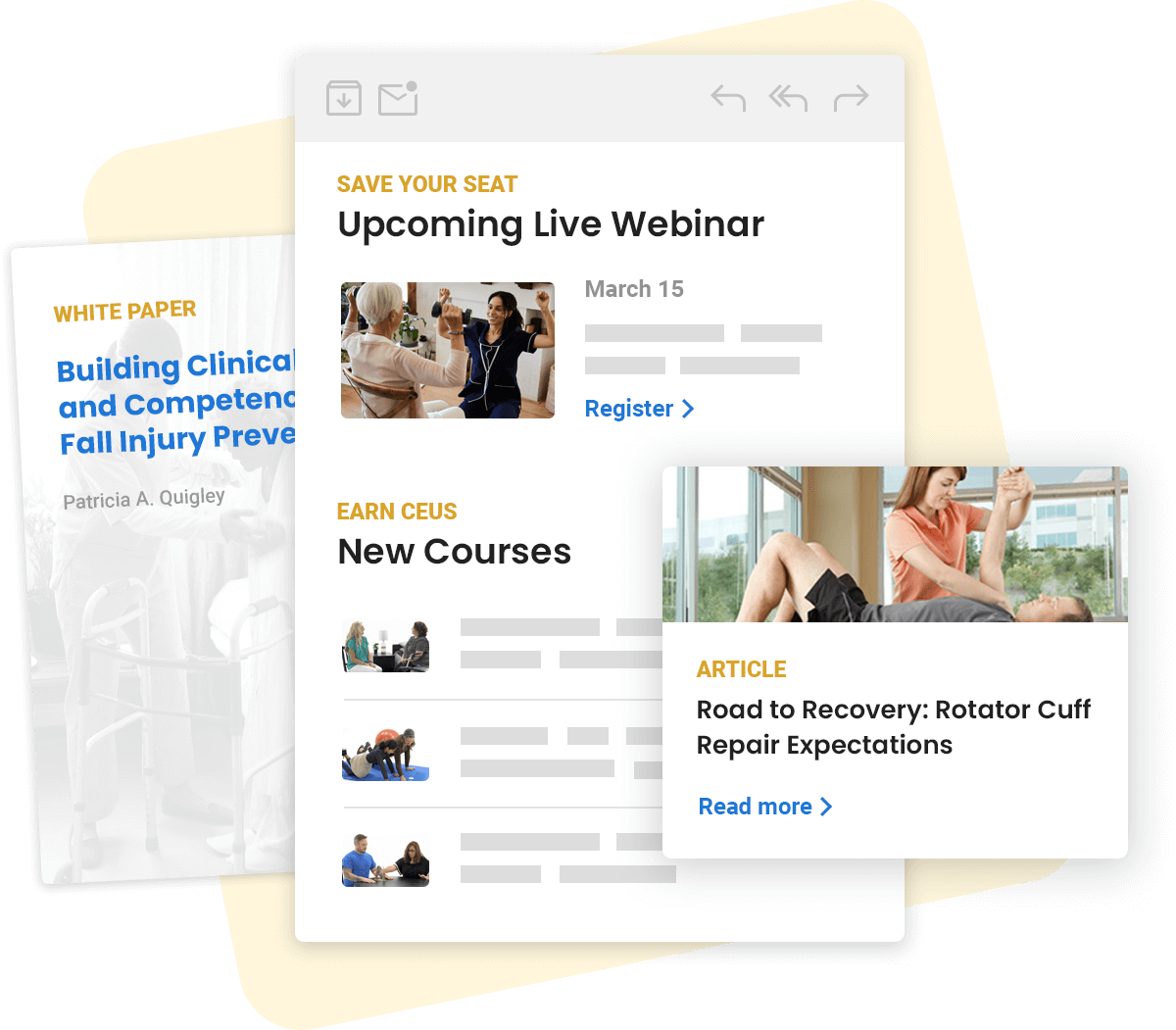5 Essential Questions for Developing Self-Awareness and Building Patient Connections

As a patient, have you ever left an appointment with a physician or therapist feeling like something was missing? Maybe the clinician failed to connect with you, appeared distracted, or even worse, disinterested. These experiences are less than satisfying and can be distressing. It’s hard to trust a clinician who seems checked out and ready to move on to the next patient – or out the door.
On the flip side, think about the clinicians who created a complete clinical experience. You may have felt she or he was personable, confident, engaged, and genuinely interested in your well-being. Often, these are the clinicians we’d like to emulate in our own professional practice. We’d like to be not only technically savvy and diagnostically skilled, but also able to communicate our genuine interest in our patients and their unique situations. Some clinicians easily develop these connections, while others struggle to build rapport and trust.
How can we become a clinician who engenders the trust of each patient? How can we connect with our patients to promote treatment adherence and clinical success?
One way to improve our genuineness and empathic regard for our patients is to increase our clinical self-awareness. We can begin to improve our self-awareness by asking these 5 questions:
- “What motivates me to do this work?”
Think of a specific scenario or person that lead you to chose this career? What patients and situations keep you interested, motivated, and/or satisfied? - “What makes me unique?”
What special strengths, large and small, do you bring to your practice and patients? - “What types of patients or situations make me uneasy?”
Consider how your uneasiness might be communicated to your patient. What are ways you can make yourself more comfortable and attentive in these moments? - “What helps me focus on my patient when I feel distracted?”
Do you have any in-the-moment strategies to redirect your attention back to the patient? For example, ask yourself, “What might my patient be worried about right now?” - “How can I remind myself about importance of the work I do in the lives of my patients?”
Hectic days can blur patients together and cloud the value of your work. What reminders can help you during these busy times?
These questions help even a seasoned clinician increase his or her level of self-awareness. The answers result in improved connections and understanding of each patient, and a more satisfying clinical experience for everyone involved.
- Borrell-Carrió, F. & Epstein, R.M. (2004). Preventing errors in clinical practice: a call for self-awareness. The Annals of Family Medicine, 2(4), 310-316.









